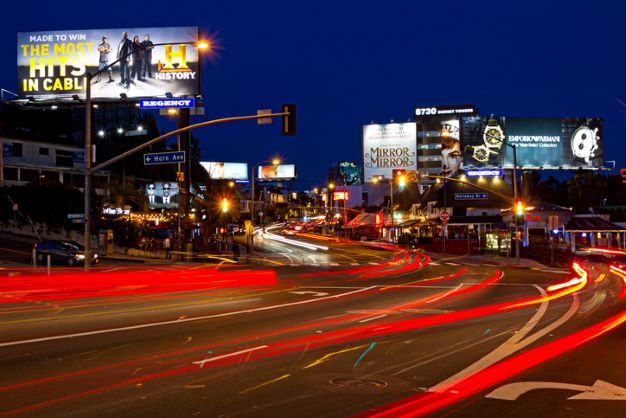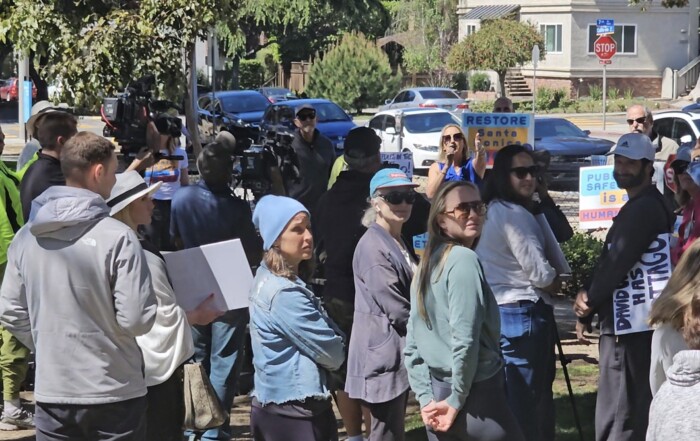“I’m happy to acknowledge this budget is balanced,” said West Hollywood City Manager David Wilson in beginning the staff presentation of the final draft proposed Operating Budget and Capital Expenditure Plan for 2022-2023. This was welcome news, as for the last couple of years, the city had been operating under a deficit due to the economic effects of the COVID-19 Pandemic.
The city’s operating budget is made up mostly of the General Fund, which at $130 Million, constitutes 69 percent of the overall budget. Within the $30 Million is approximately $117 Million in general operating expenses and roughly $3.5 Million in capital expenditures. Capital expenditures jump to $16 million, however, when other funds are included. The remaining 31 percent of the budget, or $33 Million, is comprised of a number of special funds that include transportation and debt service.
The city’s contract with the Los Angeles County Sheriff’s Department (LASD), while diverting about $3.6 million from previous budgets, remained just above $17 Million.
General Fund revenue is largely reliant on taxes at 75 percent of the pie (sales, hotel, and property), with licenses for permits, charges for services, and fines and forfeitures making up a large amount of the rest of the revenue generators. Overall, the new fiscal year will represent a $19 Million increase in revenue.
Among expenditures, city personnel and contracted services by far make up the most spending, a combined 81 percent.
When the public weighed in, speaker Alec Karakatsanis, a civil rights attorney, was critical of the city’s budget relationship with the LASD. “I study police budgets and civil rights,” began Karakatsanis, “Out of all the cities that I work in – I would estimate several dozen over the last few years – I have never seen a more egregious abuse of the budgetary process than I’ve seen in West Hollywood.” He lay most blame with the LASD, saying the budget documents they have submitted have been consistently in error and argued that the LASD spends above $350,000 a year of the city’s money per deputy.
Residents Joshua Guzman and Alberto Munoz praised the reallocation of the $3.6 million away from the LASD toward enhanced social services. Munoz, a labor representative, opined, “I believe the best way to keep our neighbors, visitors, workers, pets, and children safe is to increase funding for social services.”
Not everyone agreed. Businessman Donny Cacy asked that the city budget be approved as is, saying, “Crime is high, and in the last few months since they were considering cutting the sheriff’s budget, crime is getting worse.” He then quipped, “It’s like an alarm went off and told the thieves, ‘here’s a city you can hit.’”
Former councilmember Steve Martin said he would like to see the number of deputies return to pre-pandemic levels due to nightlife and other business life returning from the pandemic.
Mayor Lauren Meister kicked off the council debate, saying she still can’t fathom the fact that the city only has about 60 sworn sheriff’s deputies protecting a city of 35,000-36,000 people. “I honestly would like to see us reinstate the entertainment policing team, as it was pre-COVID,” said Meister. “I want to see that we have the funds available to have special operations and foot beats,” she added.
“I do think the LGBTQ DV [domestic violence] services funding needs to be increased,” said Councilmember Lindsey Horvath. She added, “The ATI [alternatives to incarceration] services are proposed but not explicitly called out and need to be funded. We need to increase our spending on Maple Counseling or whomever has contracted services for mental health. And of course, in addition to that, working to make sure we have the appropriate kind of response to the unhoused crisis that we experience that is overflow from the broader region.”
Horvath also made the point to clarify LASD staffing in West Hollywood. “There are actually 179 budgeted positions at the West Hollywood Sheriff’s Station. 76.7 deputy positions are currently filled. So all of the deputy positions the city currently funds are filled.” She referred to 35.3 vacancies that are currently open because normally the county funds additional positions on top of what the city funds. And so argued Horvath, “I don’t think the city should be paying for vacancies that are the result of the county not funding that budget.”
Mayor Pro Tempore Sepi Shyne was articulate in explaining residents’ opposition to over-policing, and praised the Block By Block security services agency, saying the public wants, “foot patrols, foot patrols, foot patrols.” Later, she argued, “Crime, and the number of deputies, are literally not related.”
Councilmember John Erickson was conflicted. On one hand, he thought Block By Block services should “flood the streets” in entertainment corridors on weekends, but also said, “I do hear from residents every single day that they are very scared in their communities.”
“I’m not going to vote for a budget that we cut the sheriffs,” declared Mayor Meister. “For me, more is better.”
Ultimately, the budget was passed which would reduce the number of LASD deputies by two in three months, and another two six months later. Money was allocated for a contract for 30 Block By Block security ambassadors, and some additional line items received a bump including a Russian cultural festival and some seed money supporting a Chamber of Commerce committee committed to promoting the success of businesses owned by Black, Indigenous and other people of color.
Voting in Support was Shyne, D’Amico, and Horvath. Erickson and Meister opposed.
Stay informed. Sign up for The Westside Voice Newsletter
By clicking submit, you agree to share your email address with Westside Voice. We do not sell or share your information with anyone.








